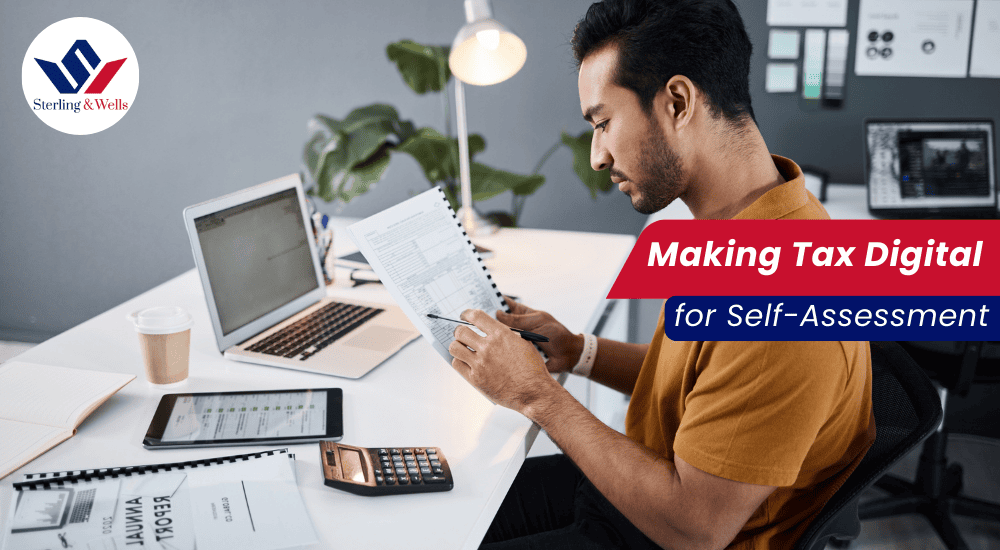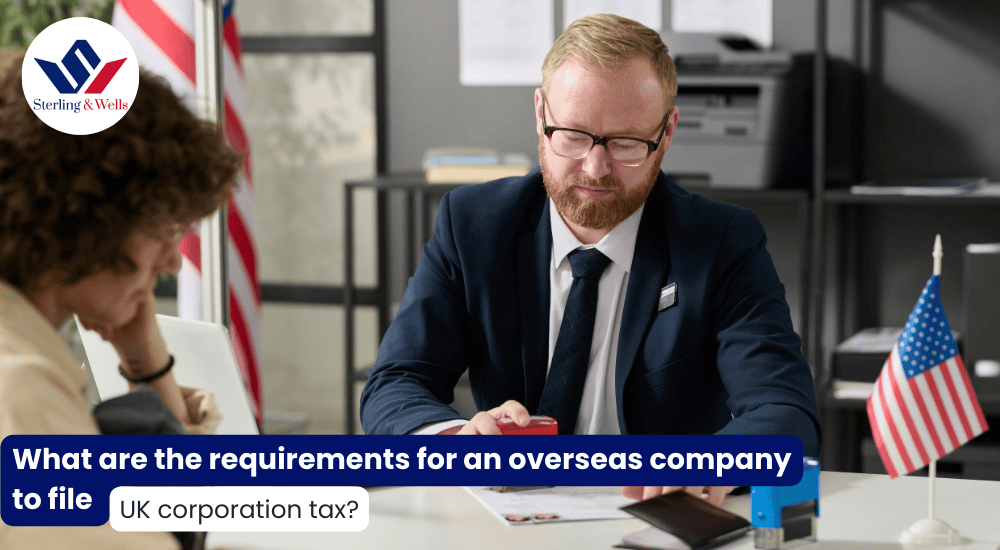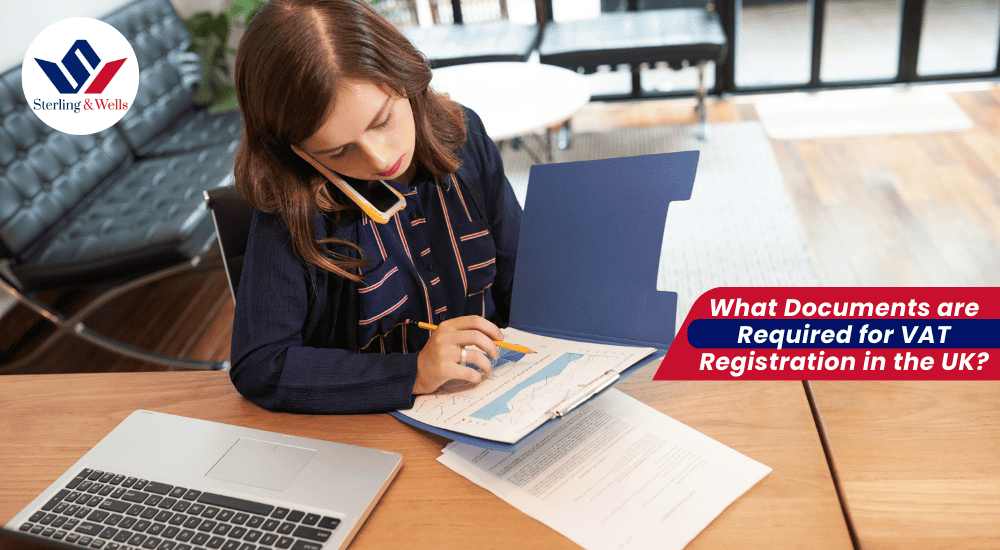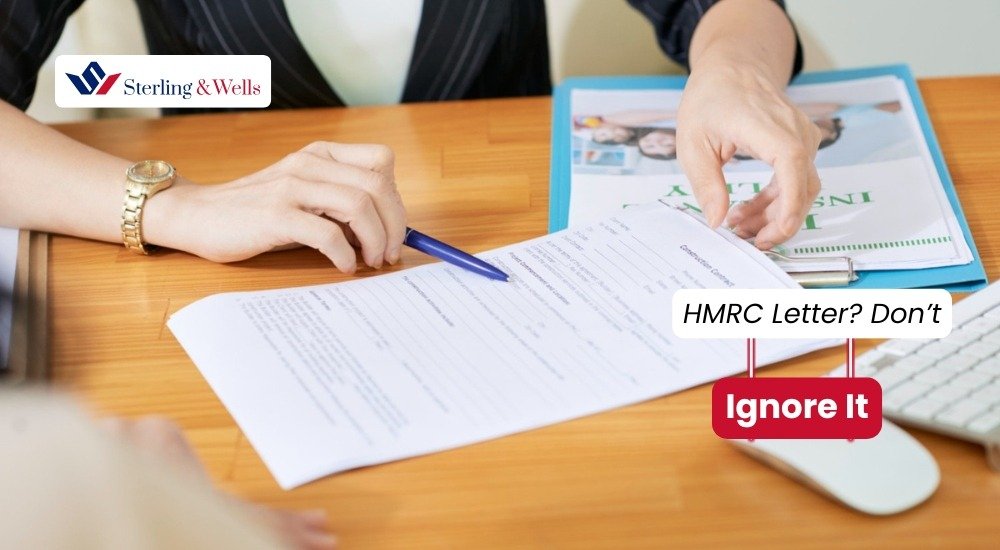If you’re a director or shareholder of a UK company but live outside the UK, it’s easy to wonder whether you need to register for Self Assessment and how to manage your UK tax obligations. Even if you don’t live in the UK, HM Revenue & Customs (HMRC) requires certain individuals to report income, dividends, and other taxable amounts. Failing to do so can lead to penalties, interest charges, and unnecessary stress.
This guide breaks down the Self Assessment process for non-UK resident directors and shareholders in a straightforward, step-by-step way. From understanding who needs to register, to the types of income you must declare, and the deadlines to remember, we cover everything you need to confidently stay compliant with HMRC while managing your UK tax efficiently.
What Is Self Assessment & Who Needs to Register?
Self Assessment is HMRC’s system for collecting income tax. It allows individuals to report income that is not fully taxed at source, including directors’ fees, dividends, and other payments that don’t go through PAYE.
As a non-UK resident director or shareholder, you generally need to register for Self Assessment if you:
- Receive UK-source income that is not fully taxed at source, such as dividends or director’s loans
- Earn above certain thresholds outside of PAYE payroll
- Have complex income streams or intend to claim specific reliefs
Even though you live outside the UK, your residency status does not exempt you from reporting UK income. HMRC requires all directors and shareholders of UK companies to declare taxable income, regardless of where they are based.
Why Residency Status Matters
Being non-UK resident affects how your income is taxed but does not remove the obligation to file a Self Assessment return. If you work in the UK or perform duties for a UK company—sometimes even attending a single board meeting—this can create taxable obligations because directors are considered office holders.
It’s also important to note that while PAYE covers most employment income, directors often receive untaxed dividends or other types of income requiring Self Assessment. Your residency status can influence the tax rate, eligibility for allowances, and relief under international agreements, but registration is always necessary.
How to Register for Self Assessment as a Non-UK Resident
Registering is straightforward and similar to the process for UK residents. You can either:
- Register online using HMRC’s digital services (fastest and recommended), or
- Complete and post the paper SA1 form.
During registration, you’ll provide:
- Personal details (date of birth, current address, contact information)
- Information about your role as a director or shareholder
- Details of any income received and the reason for filing a Self Assessment return
Once HMRC processes your registration, you will receive a Unique Taxpayer Reference (UTR) by post. The UTR is essential for filing returns and communicating with HMRC regarding your tax obligations.
Pro Tip: If you’re registering from abroad, postal delivery may take slightly longer. Allow up to 15 working days and plan ahead to meet submission deadlines.
What Income Must Be Declared
Non-UK resident directors and shareholders must declare all UK-source income that is taxable, including:
- Dividends received from UK companies
- Director’s fees and other payments from your company
- Repayments of director’s loans or benefits received through your directorship
- UK property income or other UK-sourced income unrelated to your company
Income earned outside the UK is generally not taxed in the UK, but you should check for specific reporting requirements in case of partial taxation or international treaties.
Understanding Double Taxation Treaties and Reliefs
Many countries have Double Taxation Treaties (DTTs) with the UK, designed to prevent you from paying tax twice on the same income.
However, having a DTT does not automatically exempt you from filing a Self Assessment return. You may still need to report your UK income and claim any reliefs or exemptions through proper documentation. Getting professional guidance can help optimise your tax position and ensure compliance.
Deadlines and Consequences of Non-Compliance
Being timely matters. Important points to keep in mind:
- Register as soon as you have UK taxable income requiring reporting
- Submit your Self Assessment tax return by 31 January following the end of the tax year
- Pay any tax owed by the same date to avoid interest and penalties
Failing to register or file on time can lead to:
- Automatic financial penalties that increase with delay
- Interest on outstanding tax liabilities
- Potential HMRC enforcement actions
Proactive registration and accurate filing help you avoid these issues and maintain good standing with HMRC.
How Sterling & Wells Can Help
Navigating UK tax rules from abroad can be complex, but you don’t have to do it alone. Sterling & Wells specialise in helping non-UK resident directors and shareholders with:
- Full support for registering for Self Assessment
- Guidance on income reporting, allowances, and deductions
- Advice on leveraging Double Taxation Treaties to reduce tax liabilities
- Handling communications and compliance matters with HMRC efficiently
Our team ensures your filings are accurate, timely, and beneficial for your overall tax position, giving you peace of mind while you focus on running your business internationally.
What You Should Do Next
If you are a non-UK resident director or shareholder:
- Identify any UK-source income that requires reporting
- Register for Self Assessment promptly if you haven’t already
- Collect and organise all relevant income and tax documentation for each year
- Seek expert advice to optimise tax efficiency and compliance
Taking these steps proactively ensures you meet your obligations and reduces stress for the future.
Conclusion
Registering for Self Assessment as a non-UK resident director or shareholder is not optional if you receive UK income—it’s a legal requirement. Acting promptly, understanding what needs to be reported, and keeping accurate records are key to staying compliant.
With expert support from Sterling & Wells, managing your UK tax obligations from abroad becomes far less daunting. From registration to filing returns and claiming reliefs, our team provides tailored guidance to make the process smooth and stress-free.






